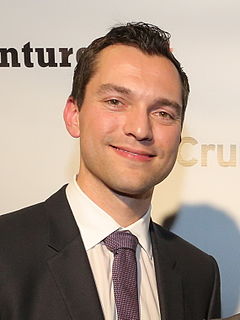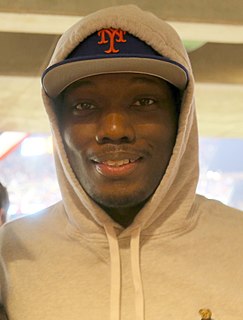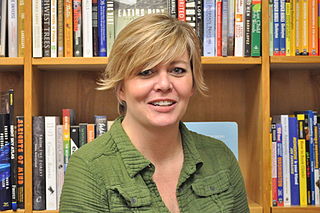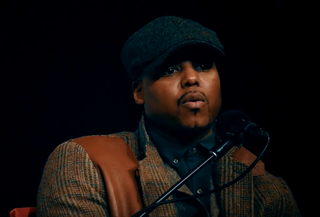A Quote by Jennifer Egan
'Look at Me' started with Rockford, Illinois and New York and the question of how much image culture was changing our inner lives. That's an abstract idea; you don't think that's going to be a rocking work of fiction, but it seemed to fuse in a way that was interesting.
Related Quotes
Touring was an abstract idea for me in the beginning. I didn't know where it was going to take me, but I knew that I wanted to go and play for lots of people. I always had that image in my mind. I had no idea what the touring experience was like, and how it was going to unfold, but I knew that I wanted to tour. Then it just started happening slowly started happening.
New York has influenced me a lot in terms of my own independence. I'm really struck by the idea of authenticity, and I think New York embodies that idea, even though people are like, 'I miss the old New York.' But at its core, it has this natural, authentic energy. L.A. lacks that idea; it's painted over.
The image itself is kind of the least important factor to me, though I'm still interested in putting forth an interesting image. I see the image as the screen laid over top of what really interests me, which is that depth of surface and that filmic quality that it has when you pass the piece. The idea that my pieces look like paintings, but are most definitely not, is really interesting to me.
A citizen at his home in Rockford, Illinois, or Boulder, Colorado, could read a newspaper, listen to a radio, or watch the round-the-clock coverage on television, but he had no way of connecting with those who shared his views. Nor was there a quick, readily available tool for an ordinary citizen to gather information on his own. In 1960, communication was a one-way street, and information was fundamentally inaccessible. The whole idea of summoning up data or reaching thousands of individuals with the touch of a finger was a science-fiction fantasy.
There were times . . . when it occurred to me that I was repeating my mother's life. Usually this thought struck me as funny. But if I happened to be tired, or if there were extra bills to pay and no money to pay them with, it seemed awful. I'd think 'This isn't the way our lives are supposed to be going.' Then I'd think 'Half the world has the same idea.
Everybody should read fiction… I don’t think serious fiction is written for a few people. I think we live in a stupid culture that won’t educate its people to read these things. It would be a much more interesting place if it would. And it’s not just that mechanics and plumbers don’t read literary fiction, it’s that doctors and lawyers don’t read literary fiction. It has nothing to do with class, it has to do with an anti-intellectual culture that doesn’t trust art.
Fang and I searched in every way we could think of and found a million institutes of one kind or another, in Manhattan and throughout New York state, but none of them seemed promising. My favorite? The Institute for Realizing Your Pet's Inner Potential. Anyone who can explain that to me, drop a line.
I think the body image thing, everybody can identify with that. In our culture there's just so much pressure and so much attention placed on the way we look. You just turn on the TV or flip open a magazine and there's people who don't look like any of us. I think this movie is like, finally, a celebration of reality and of our imperfections. We're not all a size 2 and we're not all a size 0, and you know what? That's OK, because some of us like to eat!
All of depiction is fiction, it's only a question of degree. When we think of images, such as the signing of the declaration of independence, we think of that wonderful John Trumbull painting Declaration of Independence that is at the Yale Art Gallery and on the back of our money. When we think of that historical moment we think of that image. That image never happened like that. All of those people were never in that room together to sign that paper. It's a beautiful fiction to help us have an understanding of what went on.
It had also been my belief since I started writing fiction that science fiction is never really about the future. When science fiction is old, you can only read it as being pretty much about the moment in which it was written. But it seemed to me that the toolkit that science fiction had given me when I started working had become the toolkit of a kind of literary naturalism that could be applied to an inherently incredible present.







































